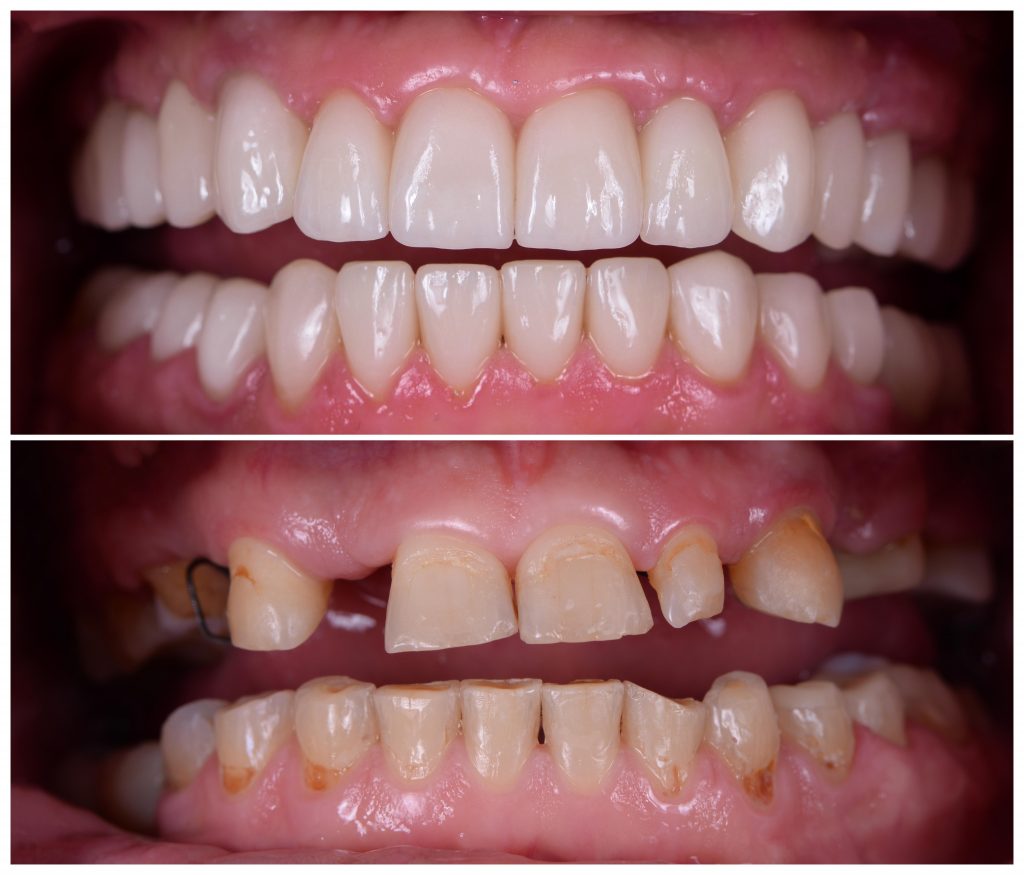Gentle Care Dentistry & Implants
General Dentist & Dental Implant Provider located in Sierra Vista, AZ
General Dentist & Dental Implant Provider located in Sierra Vista, AZ
Subperiosteal dental implants are a tooth restoration option used to replace missing teeth for patients who have insufficient bone density in the jaw. Instead of being placed directly in the jawbone, subperiosteal implants are placed under the gum line on top of the bone.
A subperiosteal implant consists of a metal frame that’s custom-fit to the patient’s jaw. The frame gets anchored to the jawbone using small posts that protrude through the gum line to support the prosthetic teeth. These artificial teeth can be fixed or removable, depending on the patient’s needs or preferences.
Due to recent advances in dental technology, subperiosteal dental implants are rarely used. Call our Sierra Vista Dentist, Dr. Kent Hales, to learn more about the dental implant process at Gentle Care Dentistry and Implants.

There are several advantages of subperiosteal implants, including:
Subperiosteal implants are placed under the gum tissue and on or above the bone. While they can be a suitable option for some patients, there are several disadvantages associated with this type of implant:
Despite the advantages of subperiosteal implants, they’re rarely used today compared to traditional endosteal implants or even zygomatic implants. The main reason is the advancements in bone grafting procedures, which have made it possible for patients with insufficient jawbone density to undergo a bone grafting procedure and receive a traditional endosteal implant.
Also, a subperiosteal implant requires a metal frame to be anchored to the jawbone, which can sometimes cause discomfort and make it difficult to clean the implant effectively. This can increase the risk of infection and may lead to implant failure over time.
In addition, subperiosteal implants are generally more complex and time-consuming to place compared to endosteal implants and require a higher level of expertise and skill from the dentist. As a result, not all dentists are trained to place subperiosteal implants, and patients may need to travel to a specialist center to receive this implant.
In recent years, advancements in dental implant technology have resulted in the development of alternative implant treatments that are less invasive and provide similar benefits to subperiosteal implants. These new implant systems are now widely available and are often a preferred option for patients who require dental implant treatment.
With advancements in technology and dental implant techniques, subperiosteal implants are rarely used. Instead, dentists usually offer one or more of these implant treatments:
To find out more about dental implant treatments near you, contact our Sierra Vista dentist. If dental implants aren’t right for you, other tooth replacements you may consider include dental bridges or removable dentures.

On average, a subperiosteal implant can last for about 10 to 15 years. However, the lifespan of a subperiosteal dental implant can vary depending on several factors such as the patient’s oral health, the quality of the implant, and the expertise of the implant dentist who performs the procedure.
The implant placement surgery can be a bit uncomfortable, but with the use of local anesthesia, the procedure should not be painful. After the procedure, patients may experience some discomfort and swelling, which can be managed with pain medication and ice packs.
Subperiosteal implants require the same care and maintenance as natural teeth, including regular brushing, flossing, and visits to your dentist twice a year for checkups and cleanings. It’s important to maintain good oral hygiene to prevent any infection from occurring and ensure the longevity of the implant.
Subperiosteal dental implants are not intended to be removable. Since the implant fuses with the jawbone over time, patients should not try to remove their dental restoration. If you’re having issues or complications with your subperiosteal implant, contact your dentist for treatment.
Endosteal implants are the most common type of dental implant and are placed directly into the jawbone. These implants are usually made of titanium and are shaped like small screws. They’re placed into the bone through a small incision in the gum tissue and left to heal. Once the implant has fused with the jawbone, a dental restoration such as a crown, bridge, or denture can be attached to the implant.
Subperiosteal implants, on the other hand, are placed on or above the jawbone but beneath the gums. Subperiosteal implants are custom-made to fit the shape of the patient’s jawbone and are placed under the gums through a small incision. Once the implant has healed, a dental restoration can be attached to the implant.
Don’t put off replacing your missing teeth any longer. With various dental implant treatments available today, our Sierra Vista dentists are sure to have what you need and will create a custom treatment plan based on your smile goals. To schedule your dental implant consultation, contact our Sierra Vista, AZ, dental office today at (520) 458-9460.
